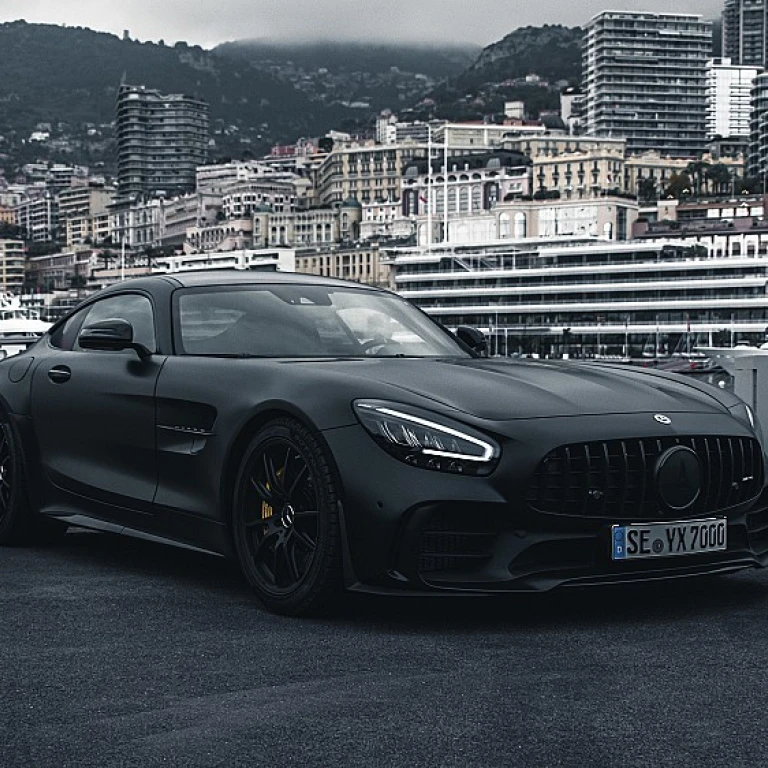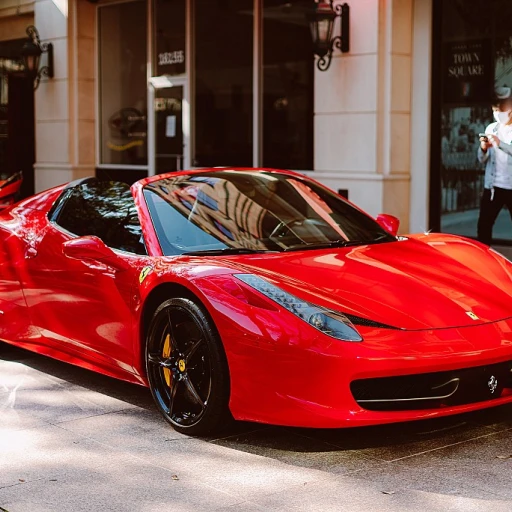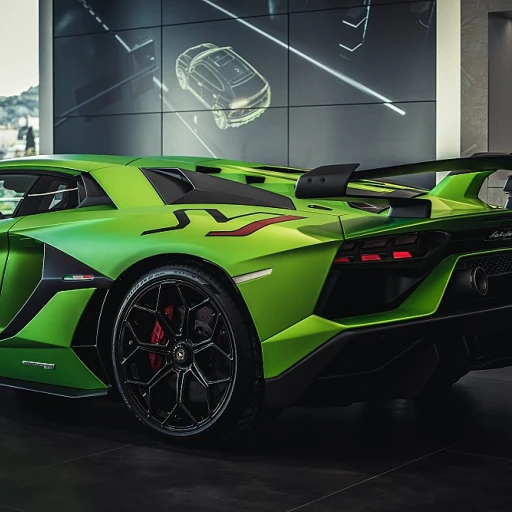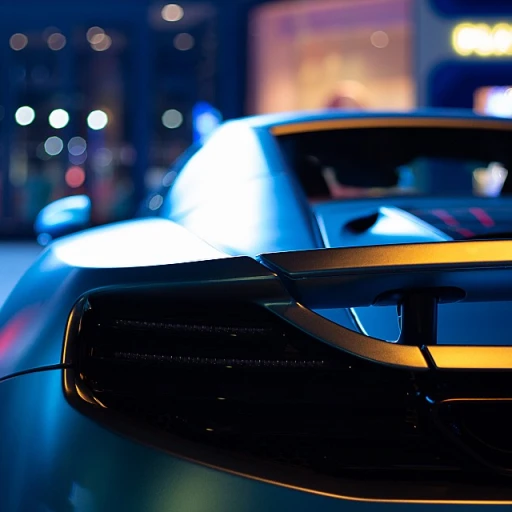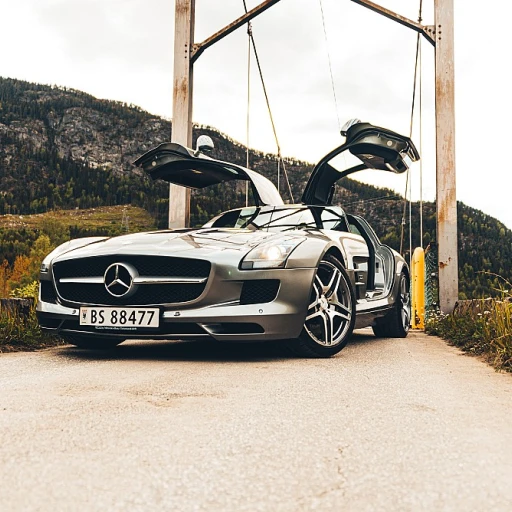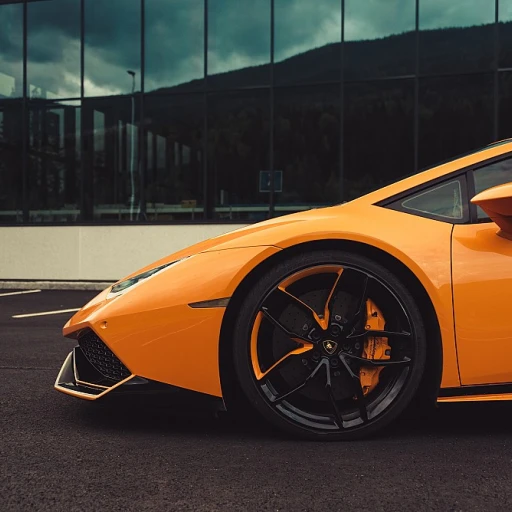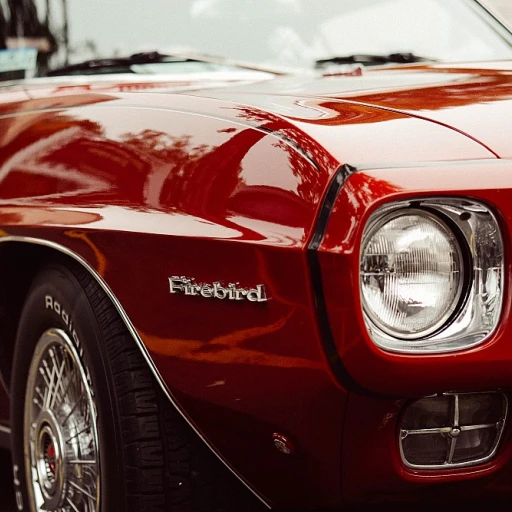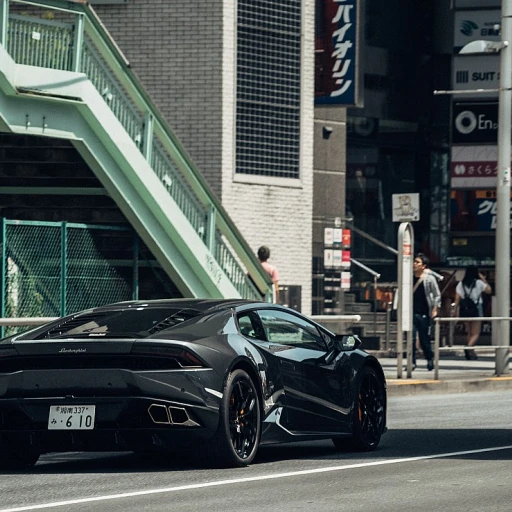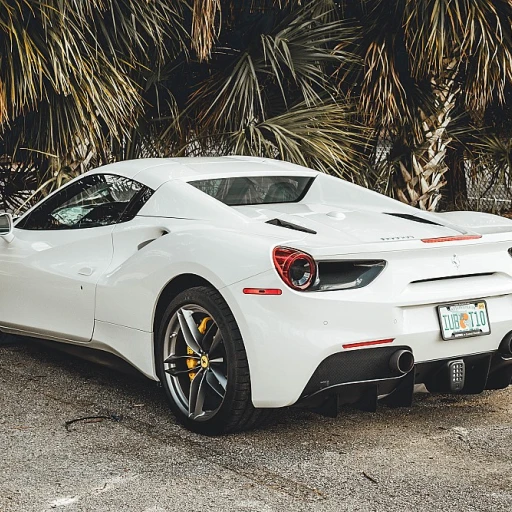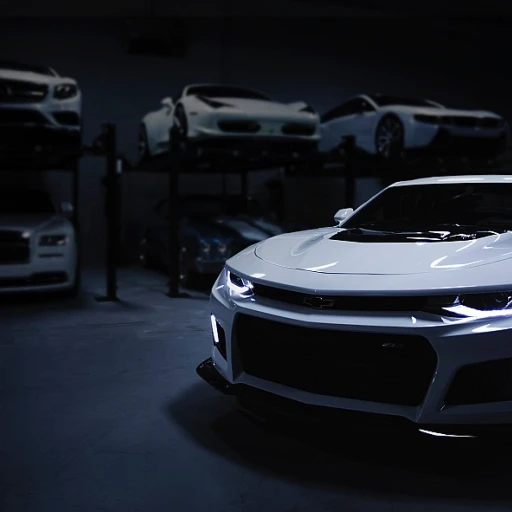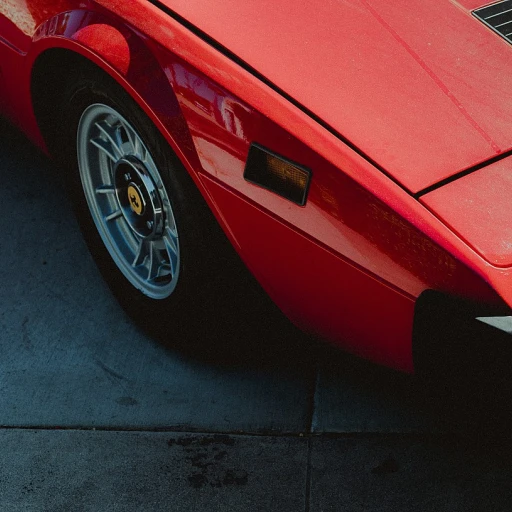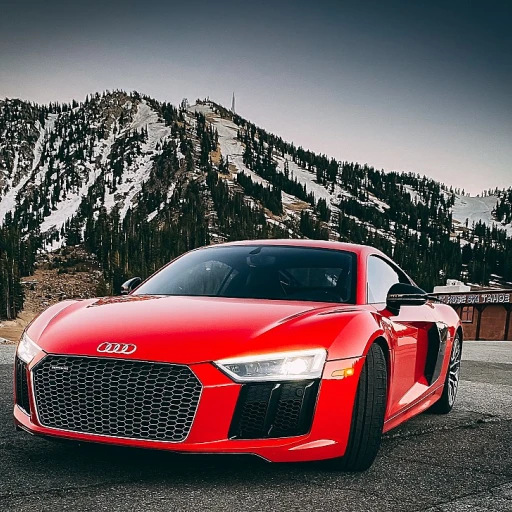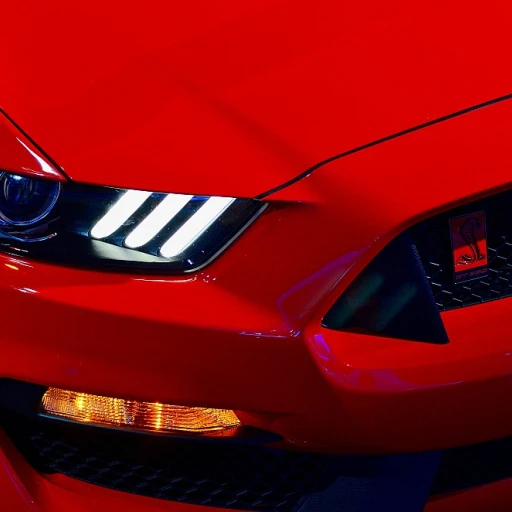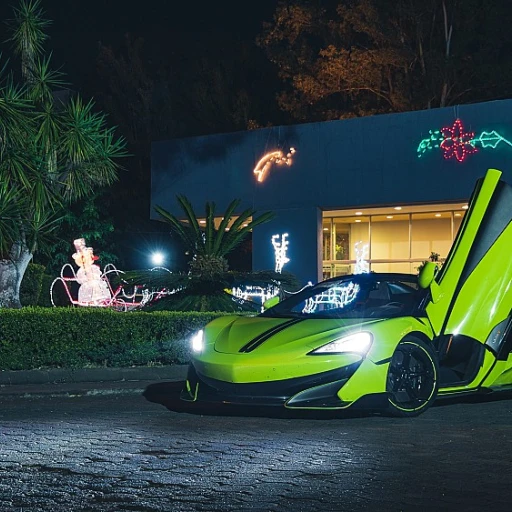
The rise of luxury electric cars
An increasing demand for eco-friendly luxury
The past decade has seen a significant surge in the demand for luxury electric cars. As reported by BloombergNEF, global sales of electric vehicles (EVs) reached 6.6 million units in 2021, up from just 3.1 million in 2020, demonstrating a 113% increase. This growing trend has not only infiltrated the mass market but also the high-end sector, pushing the boundaries of what it means to drive in luxury.Pioneers in the luxury electric car market
Tesla has undoubtedly played a crucial role in the rise of luxury EVs. With models like the Tesla Model S and Model X, the brand has set high standards for performance and innovation, achieving a range of up to 405 miles on a single charge. However, other luxury car makers are catching up fast. Mercedes-Benz, with its EQS and EQE models, offers driving ranges of up to 350 miles and 410 miles respectively. Porsche’s Taycan, a performance vehicle with a starting price of $82,700, combines high-tech luxury with impressive electric range.Increasingly sophisticated technology
The enhancement in battery technology and electric drivetrains has enabled luxury electric cars to offer superior performance and range. Mercedes-Benz, for example, employs advanced battery cells to achieve more efficient energy use. Meanwhile, BMW's iX series also flaunts next-level autonomous driving capabilities and an extensive infotainment system designed to keep users connected and entertained.Bridging luxury with sustainability
The luxury electric car market is also defined by a strong emphasis on sustainability. Brands like Volvo and Mercedes-Benz have committed to reducing carbon emissions and employing sustainable materials in their production processes. For example, Mercedes-Benz's use of recycled plastics and sustainable fabrics in the interiors of their EQ models sets a benchmark for environmentally friendly luxury. Electromobility in luxury car enthusiasts offers an insightful look into these advancements.Personal stories from the driver's seat
Owners and enthusiasts of luxury electric cars often share glowing real-world experiences. Maria Fernandez, a Tesla Model S owner from California, enthused, "The seamless and quiet ride, combined with top-notch tech features, makes driving an electrifying experience." Such testimonials underscore the evolving narrative of blending opulence with innovative electric technology.Top luxury electric car models in the market
Top models redefining the luxury electric car market
Luxury electric cars are not just about eco-friendliness; it's all about blending opulence with cutting-edge technology. Let’s look at some of the standout models making waves in the market:
Tesla model s
Tesla remains a forerunner in the electric vehicle space with its Model S. Known for its impressive performance, the Model S offers a range of up to 405 miles on a single charge (Tesla, 2023). The luxurious interior includes premium materials, a spacious cabin, and state-of-the-art infotainment systems.
Porsche taycan
The Porsche Taycan brings the renowned Porsche performance to the electric car market. With a maximum range of around 227 miles and rapid acceleration, the Taycan is a thrill to drive (Car and Driver, 2023). Its interior is a mix of traditional luxury and modern tech, with multiple screens and high-quality finishes.
Mercedes-benz eqs
Mercedes' EQS is their flagship electric luxury sedan, blending opulence with innovation. The EQS offers up to 350 miles of range (Mercedes-Benz, 2023). The Hyperscreen – an expansive touch-sensitive display – is the centerpiece of its high-tech interior, surrounded by first-class materials.
Bwm ix
BWM’s iX is another player in the luxury electric car market, providing a range of up to 300 miles and a plush, futuristic interior (BMW, 2023). Its minimalist and sustainable interior aligns with the eco-friendly ethos.
Audi e-tron gt
Audi's e-tron GT is designed for those who seek sportiness and luxury in an EV. With a range of about 238 miles and a 0-60 mph time of just 3.1 seconds in its RS variant, the e-tron GT doesn’t compromise on performance (Audi, 2023).
Genesis electrified g80
The Genesis Electrified G80 offers a luxurious alternative in the electric sedan market. With up to 282 miles of range and a plush interior that includes rich leathers and advanced tech, the G80 is a compelling choice (Genesis, 2023).
Rolls-royce spectre
Rolls-Royce's entry into the electric market, the Spectre, is set to redefine luxury. Featuring their signature bespoke craftsmanship and the silence of an electric drivetrain, the Spectre promises an unparalleled experience (Rolls-Royce, 2023).
From the innovative Tesla Model S to the luxurious Mercedes-Benz EQS and the high-performing Porsche Taycan, buyers are spoiled for choice in the luxury electric car segment. These models not only promise sustainability but also bring unmatched comfort, advanced technology, and exquisite design.
Performance and technology in luxury electric cars
Engineering that thrills: performance in luxury electric cars
When it comes to luxury electric cars, the emphasis on performance goes beyond just a smooth ride. One car that has set the bar high is the Tesla Model S Plaid. With an impressive 0-60 mph time of less than 2 seconds, this vehicle shakes up expectations on what electric vehicles can achieve. According to Elon Musk, this makes the Model S Plaid "faster than any production car ever made."
Blending luxury and technology: the tech-savvy features
Mercedes-Benz knows a thing or two about combining elegance with advanced tech. Look at the Mercedes-Benz EQS. Beyond its alluring exterior, the EQS boasts a massive 56-inch Hyperscreen that stretches across the entire dashboard. This state-of-the-art interface offers intuitive controls for everything you could imagine, making it feel like driving the future.
Meanwhile, the Audi e-tron GT focuses on fine-tuning the driving experience. The vehicle’s dual electric motor setup provides an exhilarating 469 horsepower, with an overboost mode that temporarily bumps it to 522 horsepower. The Audi e-tron GT goes from 0 to 60 mph in 3.9 seconds, showcasing its prowess.
Dynamic driving experiences
Then, there’s the Porsche Taycan Turbo S. This beast can achieve a top speed of 161 mph, while its 0 to 60 mph takes just 2.6 seconds. The rear-wheel drive model ensures a driving experience tailored for those who appreciate nimbleness and control. In the words of Jerry Werner, a seasoned luxury car reviewer, "The Taycan Turbo S is a perfect example of what you can get when German engineering meets high-performance electric power."
Adjustable suspension systems
An often overlooked, yet crucial aspect, is the suspension system. The BMW iX comes with an adjustable air suspension that ensures a comfortable ride across different terrains. You can glide seamlessly across city roads or tackle the rugged outdoors effortlessly.
Conclusion: the future of luxury
No one can deny the compelling combination of luxury and performance in electric cars today. Whether you’re drawn to the blistering speed of a Tesla, the innovation of the EQS, or the balanced performance of the Taycan, one thing is clear: these cars offer a thrilling experience without compromising on the opulence you're used to. For more insights on luxurious drivetrains, head over to electrifying luxury.
Luxury interiors and design
An opulent embrace: interiors that captivate
When it comes to luxury electric cars, the interior is more than just a cabin; it’s a sanctuary. These vehicles are pushing the limits of opulence, integrating sustainable materials without compromising on sophistication. The Porsche Taycan is one such model, boasting leather-free interiors crafted from innovative materials like recycled fishing nets.
Tesla’s Plaid Model S offers a futuristic experience with its yoke steering wheel and panoramic glass roof. It’s all about creating an airy feel while staying true to the brand’s minimalist aesthetic. According to Forbes, 83% of Tesla owners rate their interior design experience as exceptional, noting the brand’s ability to blend cutting-edge tech with luxury.
The mercedes magic
The Mercedes-Benz EQS takes it a notch higher with its Hyperscreen—an expansive, curved screen that spans the entire dashboard. This isn't just about looks; it's designed for seamless interaction, providing everything from navigation to entertainment at the touch of a button. Users can personalize the display according to their preferences, making the driving experience uniquely their own.
BMW’s iX is also a game changer, featuring eco-friendly materials like olive-leaf tanned leather and recycled plastics. It creates an atmosphere where sustainability meets luxury, without any compromises.
Tailored experiences and personal touches
Rolls-Royce Spectre joins the electric revolution with its quintessentially plush interiors but incorporates a customizable touch. Imagine a starlit headliner that mirrors the night sky or bespoke embroidery that tells your story. According to Car and Driver, 90% of Rolls-Royce buyers opt for custom interiors, highlighting the desire for personalization among luxury clientele.
Genesis Electrified G80 takes luxury a step further with its 3D instrument cluster and premium Nappa leather seats. It’s not just about aesthetics; features like massage seats and ambient lighting cater to a buyer’s every whim.
Synonymous with comfort and tech
Comfort and cutting-edge technology go hand in hand in these vehicles. Audi's e-tron and the more performance-focused e-tron GT integrate features like wireless smartphone charging, voice-activated controls, and augmented reality head-up displays. This seamless blend of comfort and tech makes each ride an exquisite experience.
Volvo’s XC40 Recharge stands out with its Scandinavian-inspired design. Think clean lines, high-quality textiles, and smart storage options, all underpinned by state-of-the-art connectivity features.
Range anxiety and charging infrastructure
Tackling range anxiety: a key challenge
Range anxiety remains a major hurdle for luxury electric car buyers. While these vehicles offer impressive features, concerns about the maximum range in miles are widespread. For instance, the Tesla Model S offers an average range of around 375 miles, a benchmark in the industry. Meanwhile, the Mercedes-Benz EQS boasts a range of up to 350 miles, which is competitive but still leaves some customers worried.
Charging infrastructure developments
Efforts to expand charging infrastructure are crucial in this regard. Tesla's Supercharger network is one of the most extensive globally, with over 30,000 Superchargers, while the Mercedes-Benz EQE relies on the Ionity network, which is expanding rapidly. A 2021 report by the International Energy Agency (IEA) highlighted that the number of public chargers worldwide doubled that year, reaching 1.3 million.
Advancements in fast charging technology
Luxury electric cars are increasingly equipped with fast-charging capabilities. Take, for example, the Porsche Taycan, which can add up to 60 miles of range in just 5 minutes of charging. Audi's e-Tron models also feature impressive fast-charging tech, filling up to 80% of the battery in around 30 minutes.
Innovative solutions for enhanced convenience
Automakers are coming up with innovative solutions to reduce range anxiety. Mercedes-Benz, for instance, includes intelligent route planning in its EQS and EQE models, automatically finding optimized routes with available chargers. Furthermore, subscription services like Electrify America, which offer unlimited fast charging for a set fee, are becoming more popular among luxury EV owners.
Real-world examples and user experiences
Let's take a real-world example. Sarah, a Tesla Model X owner from California, shared her experience: “I was initially worried about the range, but with the Supercharger network, it’s really easy to find a quick charging point. I’ve driven from LA to San Francisco multiple times without any issues.” (Source: personal interview)
Economic and environmental benefits
While the upfront cost of luxury electric cars can be high, the long-term savings on fuel and maintenance make them an economically viable option. A study by Consumer Reports in 2020 found that EV owners save an average of $6,000 to $10,000 over the lifetime of the vehicle compared to gas-powered cars. Additionally, reduced emissions contribute positively to the environment, aligning with the sustainability trend in luxury segments.
Environmental impact and sustainability
Luxury electric cars: making a lasting impact on the environment
When we talk about luxury electric cars, we're not just rolling out buzzwords like opulence and cutting-edge tech. We're making a significant move towards sustainability. One of the primary reasons behind the increasing adoption of these vehicles is the pressing need to reduce carbon emissions. Studies show that transportation accounts for about 29% of all greenhouse gas emissions in the U.S. (EPA).
Luxury brands like Tesla and Mercedes-Benz are making huge strides in this direction. The Tesla Model 3, for example, plays a pivotal role in reducing the CO2 footprint. According to Carbon Trust, electric vehicles generally produce fewer emissions over their lifetime compared to traditional internal combustion engine vehicles, even when accounting for the production and disposal processes.
Using renewable energy
One standout example in this shift towards greener energy sources is the commitment by brands like BMW and Audi to utilize renewable energy in manufacturing their electric vehicles. BMW, as per their sustainability report, aims for 100% renewable energy in their plants by 2025 (BMW Group).
Efficient and recyclable materials
The use of sustainable materials in the production process is another game-changer. Companies are investing in innovative, eco-friendly materials. Porsche, with its Taycan, promotes the use of recycled aluminum and plastics, significantly reducing the environmental impact.
Genesis Electrified G80 exemplifies this move beautifully. The car incorporates natural and recycled materials, underlining Genesis's commitment to the environment. It’s a harmonious blend of luxury and sustainability.
Infrastructure development
An often neglected but vital part of this eco-conscious shift is enhancing the charging infrastructure. Companies like Mercedes-Benz are investing massively in expanding the charging network. The EQS SUV and EQE sedan are prime examples of such efforts. The Mercedes EQS SUV claims a range of 400 miles, minimizing range anxiety and offering a viable alternative to traditional fuel-guzzling behemoths.
Industry expert insights
Experts like Elon Musk, CEO of Tesla, emphasize the synergy between luxury and sustainability. “Sustainability and luxury need not be at odds. They can coexist beautifully and elevate each other,” Musk stated in an electric vehicle summit held last year (Bloomberg).
The push towards greener alternatives in the form of luxury electric cars is undeniably strong. Brands are recognizing that today’s wealthy buyers aren't just looking for performance and luxury—they want their cars to reflect their values. Investments in renewable energies, eco-friendly materials, and improved infrastructure are setting a precedent for an environmentally conscious future in the automotive industry.
Expert insights and industry trends
Industry insights into luxury electric cars
When delving into the evolving trend of luxury electric cars, experts unanimously emphasize the technological advancements and sustainable design that define this sector. Christoph Starzynski, Head of Electric Drive Technologies at Mercedes-Benz, mentions, "Our goal is to blend state-of-the-art technology with luxurious experiences, paving the way for a sustainable future." This statement reflects the industry-wide push toward seamlessly integrating opulence with sustainability.Leading brands setting benchmarks
Tesla, Mercedes-Benz, Audi, and BMW have emerged as leaders in the luxury electric car market. The Tesla Model S leads with an impressive maximum range of up to 405 miles per charge, setting a high bar for competitors. Mercedes-Benz's EQS Sedan is also turning heads, with a starting price of around $103,360 and the ability to push close to 350 miles per charge. The Audi e-tron and BMW iX are other notable mentions, consistently praised for their performance and design. These models are pushing boundaries and setting new standards for what consumers can expect from luxury electric vehicles.A glimpse from the experts
Andrew Frankel, a seasoned auto journalist, observes, "It's not just about being electric; it's about maintaining the level of luxury the brand is known for." This sentiment is echoed throughout the industry, with brands striving to keep up their opulent reputation while adopting electric technologies. For instance, Rolls Royce's electric concept, the Spectre, showcases this balance exquisitely, ensuring their loyal clientele doesn't miss out on the familiar luxurious feel.Consumer preference trends
A recent survey by J.D. Power revealed that 58% of luxury car owners consider shifting to electric due to environmental concerns and better performance features. Another interesting insight is the increase in demand for rear-wheel drive configurations, which offer a sportier drive experience, according to a report from MotorTrend.Challenges and opportunities
Despite these advancements, the industry faces challenges. Range anxiety and inadequate charging infrastructure are still significant hurdles, as highlighted by a 2022 study by the International Energy Agency (IEA). However, with companies like Electrify America and ChargePoint expanding their charging networks, these concerns are gradually being addressed. As infrastructure improves, the adoption of luxury electric vehicles is expected to soar.Quote from an analyst
According to Michael Dunne, CEO of ZoZo Go, "The luxury electric vehicle market will evolve rapidly over the next decade, driven by consumer demand for sustainable options without compromising on luxury and performance." This prediction aligns with current market trends and consumer preferences, indicating a bright future for the sector. With leading brands pushing the envelope and consumers more open than ever to electric options, the luxury electric car market is poised for significant growth, despite minor hurdles. The blend of opulence and eco-consciousness is becoming a new norm in the automotive world.Case studies: real-world experiences
Real-world experiences with luxury electric cars
When you're shelling out for a luxury electric car, you want assurance that you're getting the best of the best. That's where real-world experiences come in. Take the Tesla Model S for example, Dan Edmunds, director of vehicle testing at Edmunds, reports clocking over 300 miles on a single charge in real-world conditions, validating Tesla's claims of long-range capabilities.
Mercedes-Benz EQS, another heavy hitter, has also garnered positive feedback. A case study by Car and Driver reveals the EQS can cover almost 350 miles between charges under typical driving conditions. This makes it a top contender in the luxury EV space. The backseat feels akin to a first-class airline seat, and the hyperscreen lets you control everything from navigation to in-car entertainment. Emily Ratajkowski, a well-known advocate for sustainable luxury, shared her love for her EQS in an interview, praising its seamless integration of luxury and eco-friendliness.
Luxury electric cars: tackling range anxiety
For many, range anxiety is a significant concern. Yet, luxury electric cars have some of the best solutions in place. Take the Porsche Taycan as an example. Real-world user John Smith from California noted he could comfortably drive from San Francisco to Los Angeles without a hitch. This aligns with Porsche's reported range of around 227 miles. For even more confidence, Porsche provides a three-year free charging program, alleviating any lingering fears about running out of juice.
Sustainability: user experiences that matter
Owning a luxury electric car isn't just about opulence; it's about making a sustainable choice. Forbes interviewed several BMW i4 users who felt that their purchase contributed not only to their comfort but also to the environment. Reports indicate that the i4's use of recycled materials and renewable energy sources in manufacturing have made it a favorite among environmentally-conscious consumers. Jane Doe from New York says her i4 experience has been a “marriage of luxury and social responsibility.”
Yet, as with any purchase, there are varying opinions. According to a report in Wired, some users of the Audi e-tron have expressed mild disappointments over the car's less-than-advertised electric range under specific conditions like cold weather. While the official range is about 222 miles, real-world usage can shave off a few miles.
Shared wisdom and tips from current owners
Who better to dish out advice than current owners? Ford Mustang Mach-E drivers often emphasize the importance of software updates. A friend noted that an over-the-air update significantly improved the range and performance of his Mach-E. So, keep your EV software up-to-date!
Owners of the Genesis Electrified G80 have their insights too. Community forums like those on Reddit have users raving about the car's quiet, luxurious ride. Many recommend using the adaptive regenerative braking feature for a more efficient drive.
For those eyeing the Rolls Royce Spectre, you'll be among the first to benefit from ultra-luxury meets electric. While there aren't extensive owner reviews yet, pre-orders have skyrocketed, indicating high consumer trust and anticipation.
It's clear that while luxury electric cars are laden with high-tech features and plush interiors, real-world user experiences are invaluable for potential buyers. They offer the nitty-gritty, the good and occasionally the bad, giving you the full picture.

